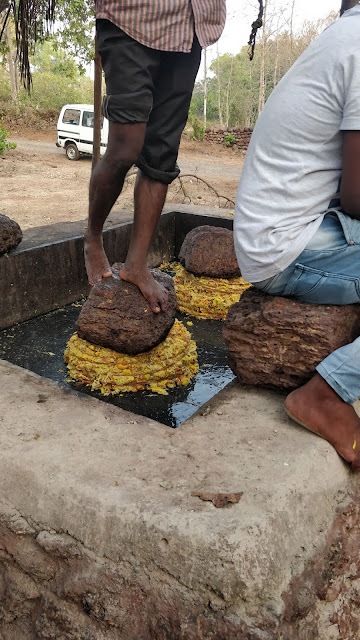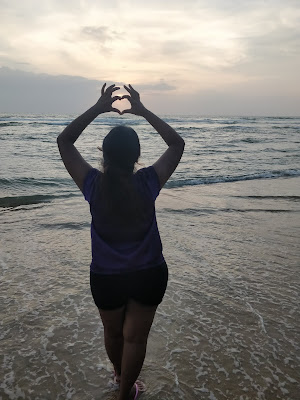customs and traditions
THE GOAN TRADITION
Now, Goa has a copious of customs and traditions, each being differently adhered to and revelled in different parts of the state. The Portuguese culture can be seen reflected by the architecture of some of the houses, churches and bungalows which are seraphic and Goans articulate Portuguese like no other states in India.
The Goans follow the western culture in terms of their ethnicity with some 'desi' tweaks. Goan women are usually seen flaunting the traditional sarees whereas the youth exhibit all sorts of fashion. All Goans live in perfect harmony irrespective of their religion and castes. Castes are almost obsolete in Goa except for a few remote areas.
Goan weddings:
Another distinct feature about the people of Goa are the ways they celebrate their weddings. The zeal is felt even months before the wedding and everybody get all engrossed in the preparation. One cannot blind side the big fat Catholic weddings. In this, a week before the wedding date, the bride-to-be ornate her hands with colourful bangles signifying the inception of the celebration. The near and dear ones get busy decorating the houses, forming arcs of coconut leaves infront of the main door. A few days before the wedding, a form of traditional ritual is carried out wherein food is served for the poor and remembering the dead and in the evening, the bride and groom along with the entourage are bathed in coconut milk by the close members of the respective families. Coconut milk is primarily used as back in the days, coconut milk would be used by the noble people to cleanse their bodies to obtain smooth and soft glow skin. This is an olden practice and still extant among this generation, even with the advent of modern cosmetics.
The wedding is held the usual way with the bride and groom taking their vows in the church and the priest blessing the rings and pronouncing the two to be men and wife, with which the couple share a kiss to commemorate their married life. And to celebrate this joyous day, there's a reception in the evening where men carouse and dance to live bands.

Festivals
Besides the cliché of festivals celebrated widely in the state, I would like to stress more on the endemic traditions of Goa.
To get to know them better, let us take each of the traditions consequently
1.carnival
celebrated in the month of February, this revel is all more like the festival of colours. With children running around their houses and compounds with water-filled balloons to drench their chums and relatives, the carnival is all about dancing merrily to the music played during the parade and being nostalgic.

2. sao joao
this is the festival of the monsoon embarking the day St. John the Baptist was born. Locals usually celebrate this festival by jumping into wells, enumerating the act of St. John the Baptist cleansing people by dipping them in waters back in the days. Later in the evenings, the crowd comes together to witness boat parade whereby artists, emerging as well as notable, showcase their talents through music, dance and drama. The revelry goes on till late evenings with djs grooving the crowd with their overnight gigs.
Goan cuisine consists of seafood, fish curry and rice. Goan staple food is incomplete without fish. Goan cuisine is a blend of different influences the Goans had to endure during the centuries. On other fronts however, there is a vast difference in the foods of these two communities, the main reason being that the Christians also eat beef and pork which are taboo in most Hindu households. While Hindu Goan food does not seem to have picked up any Portuguese influence, the Christian food has been influenced not only by the Portuguese, but also by its overseas settlements. However, it has not been a one-way transfer. An example is canjade galinha, which is a type of chicken broth with rice and chicken pieces, and is originally a Goan recipe. Another is arroz doce, which is a Portuguese adaptation of pais or kheer (sweetened rice) found in India.
the people of Goa, formally called as Goans, live to cherish their culture and uphold the traditions passed onto them by their forefathers. This includes various genres of dance forms passed down generation after generations and is still seen practised during major dance festivals. some of these are:
Mando: this music is usually sung by an orchestra and couples dancing to their rhythms wearing ethnic outfits. this type of music is even common during the big fat Goan catholic weddings and also during pre-marital ceremonies.
the Kunbi dance: is a tribal folk form, highly enjoyable and dance with great charisma. the dancers sport the tribal wear, mainly women wearing saree and ornated with flowers and men dressed in vest and towel wrapped around their waist and swaying to the beats of tribal songs.
Suvari is a popular form of folk as well as traditional music that forms an integral part of festivals and religious occasions. Suvari is basically instrumental orchestra that involves a synchronized combination of different tunes set to stylized beats. The instruments are basically traditional in nature like Ghumot, Shamel, Cymbals, Harmonium, etc.



